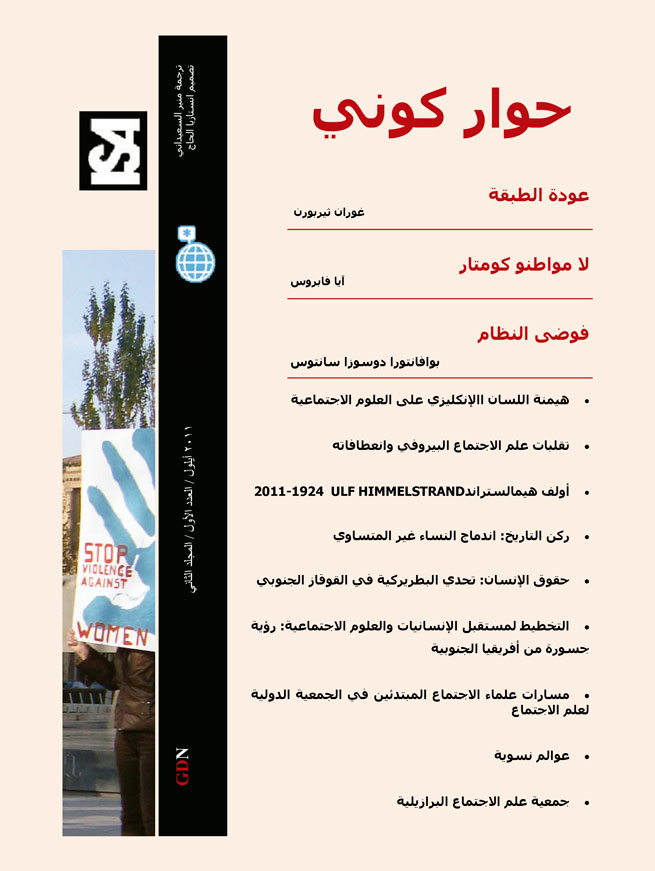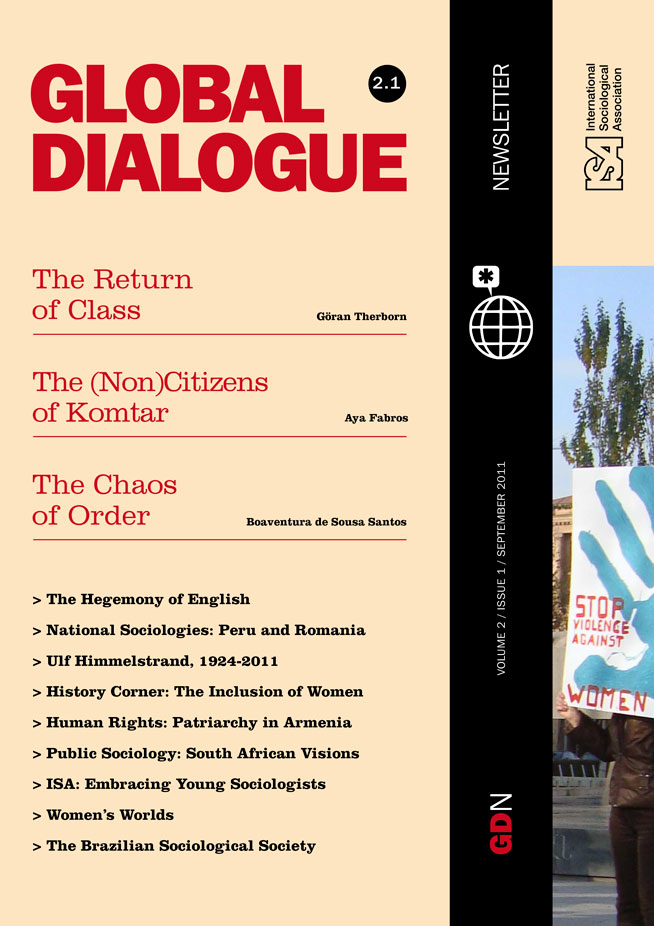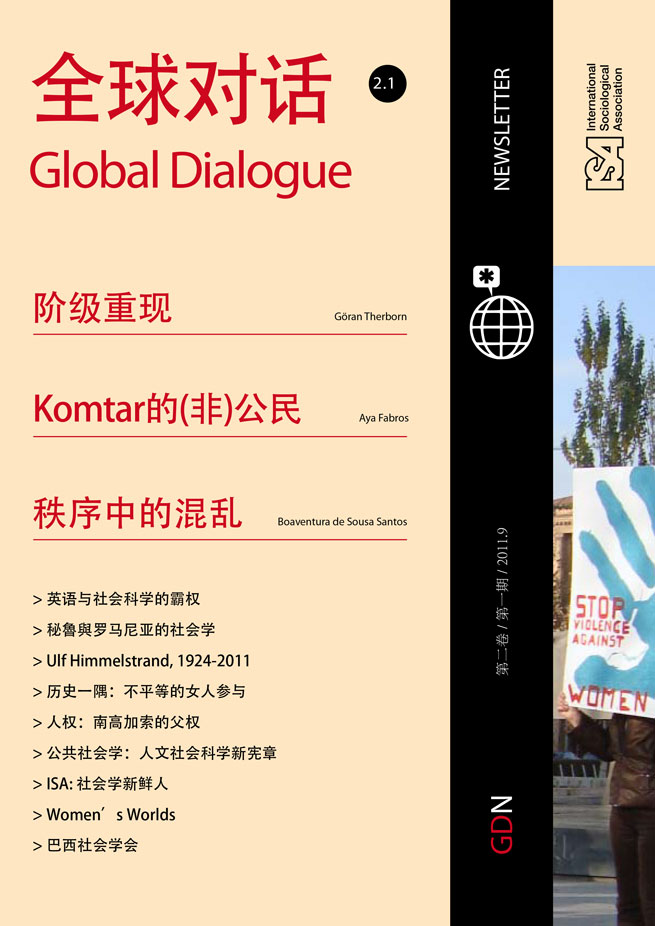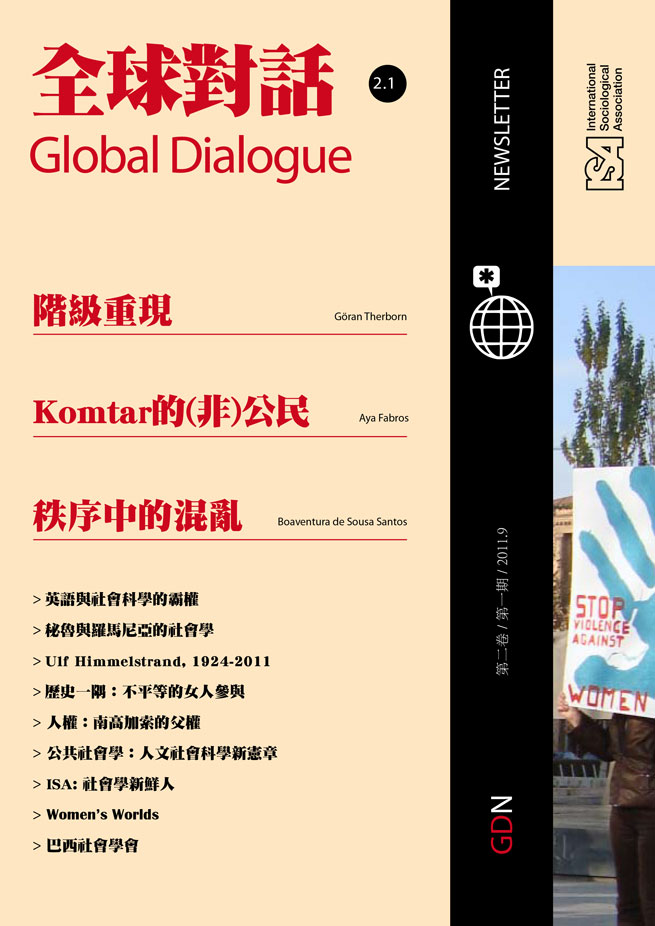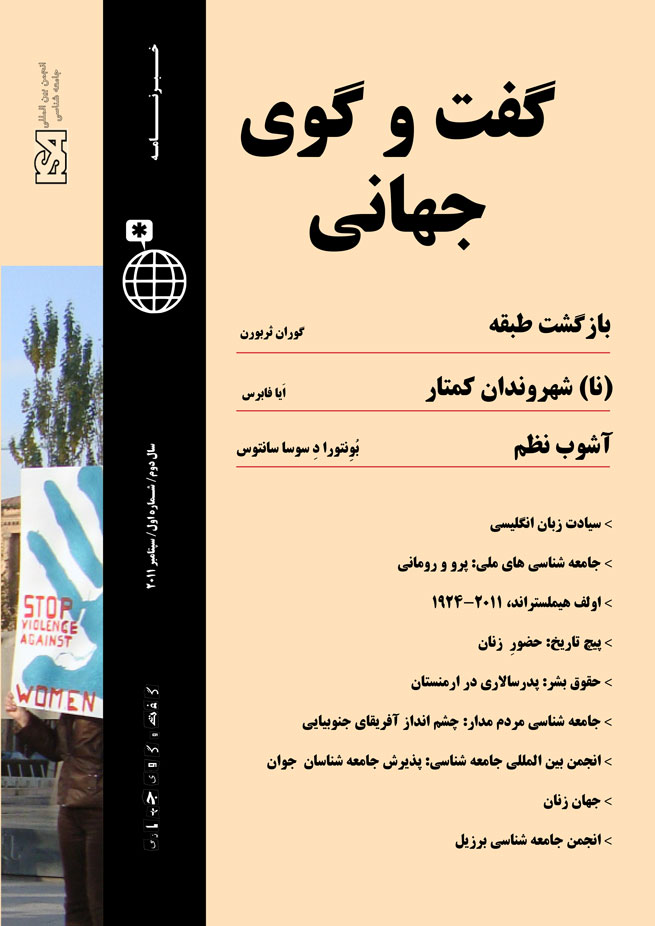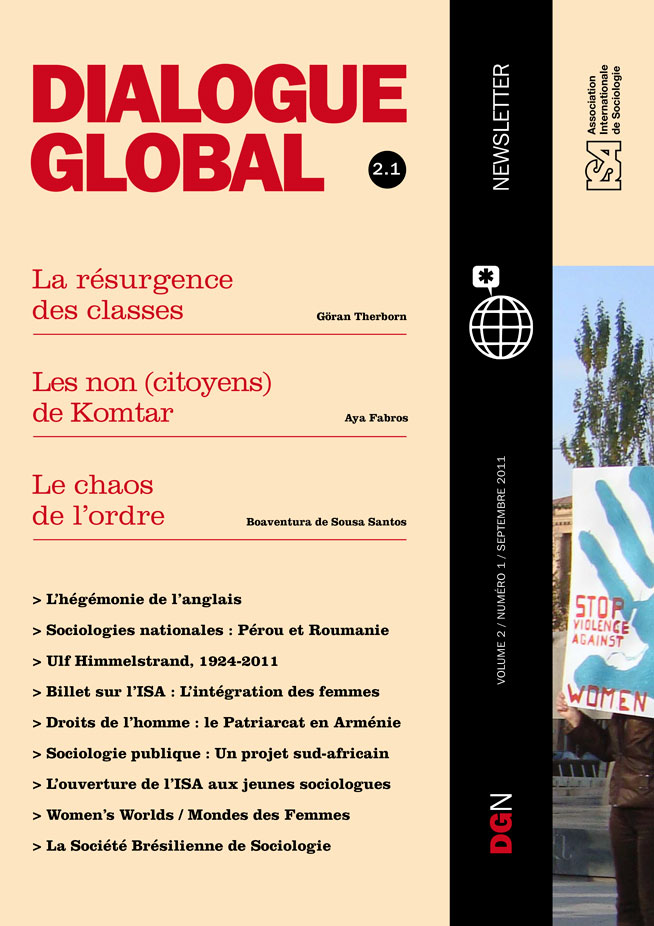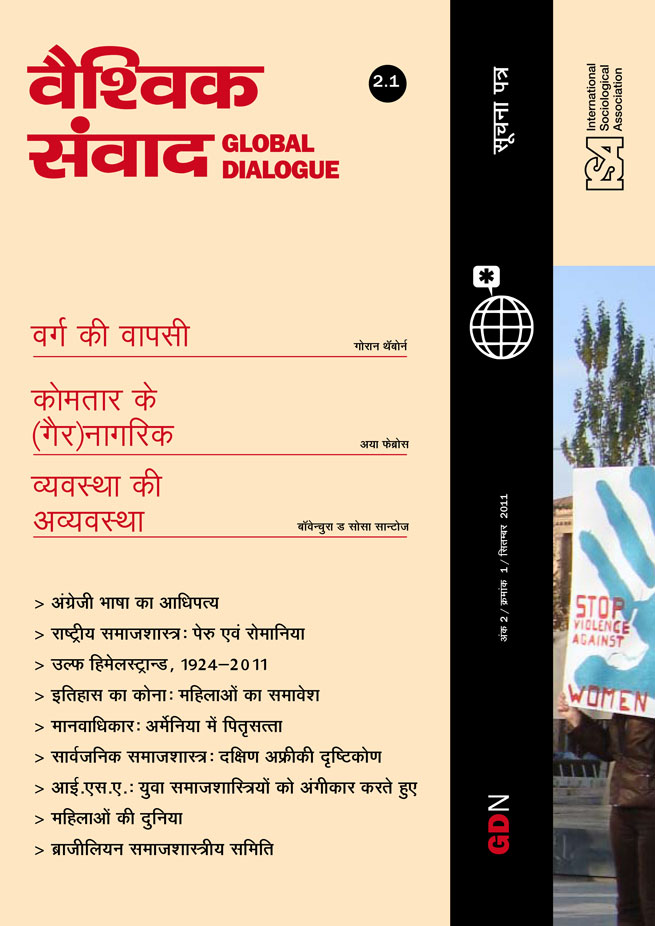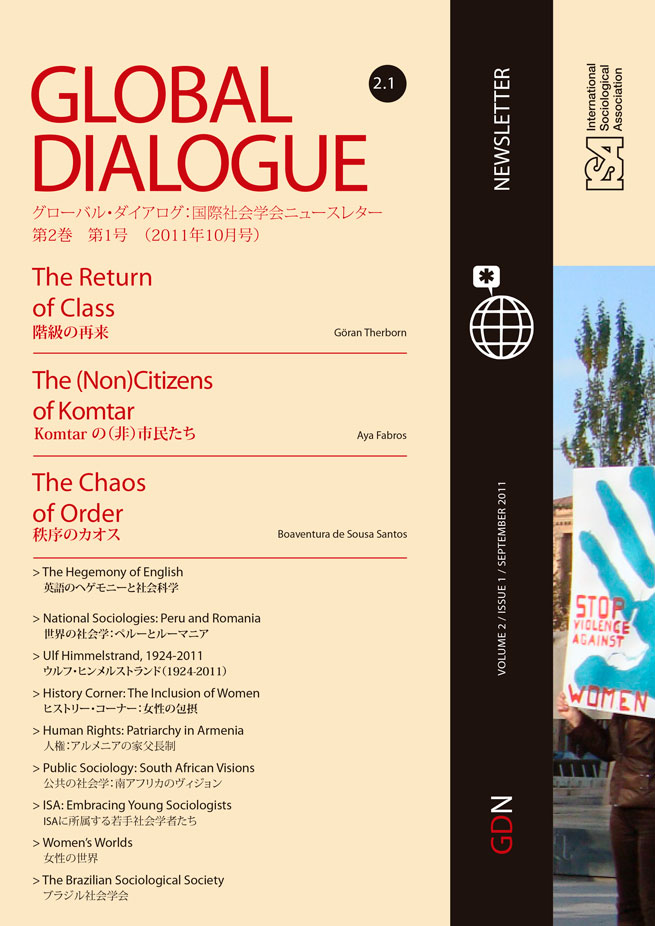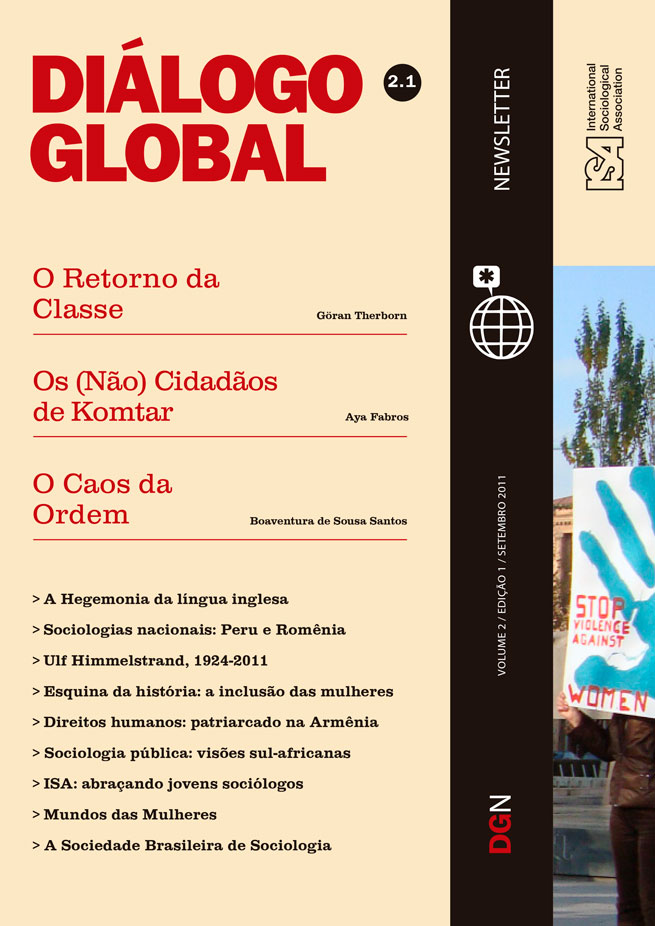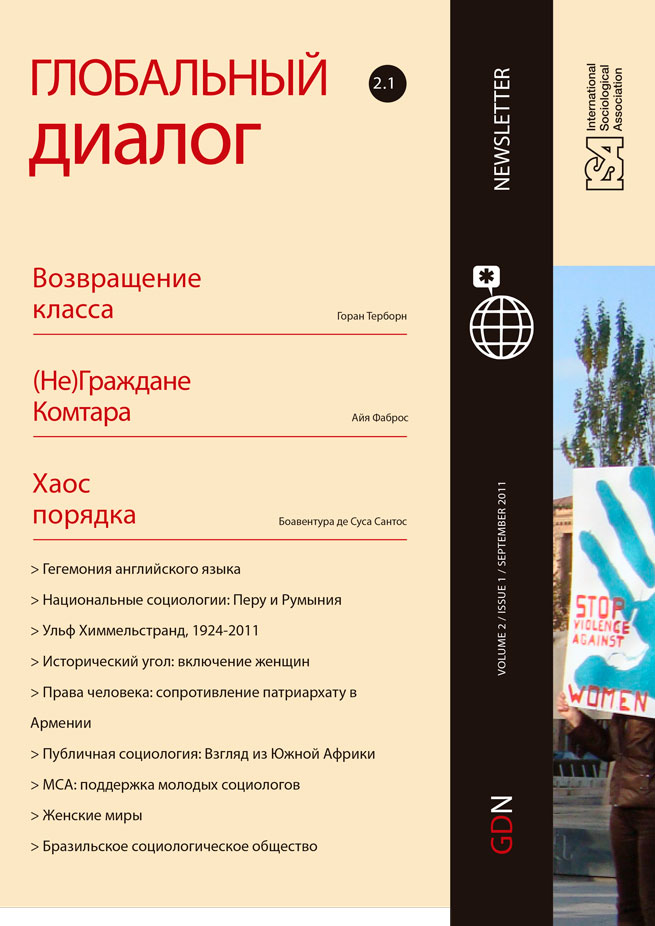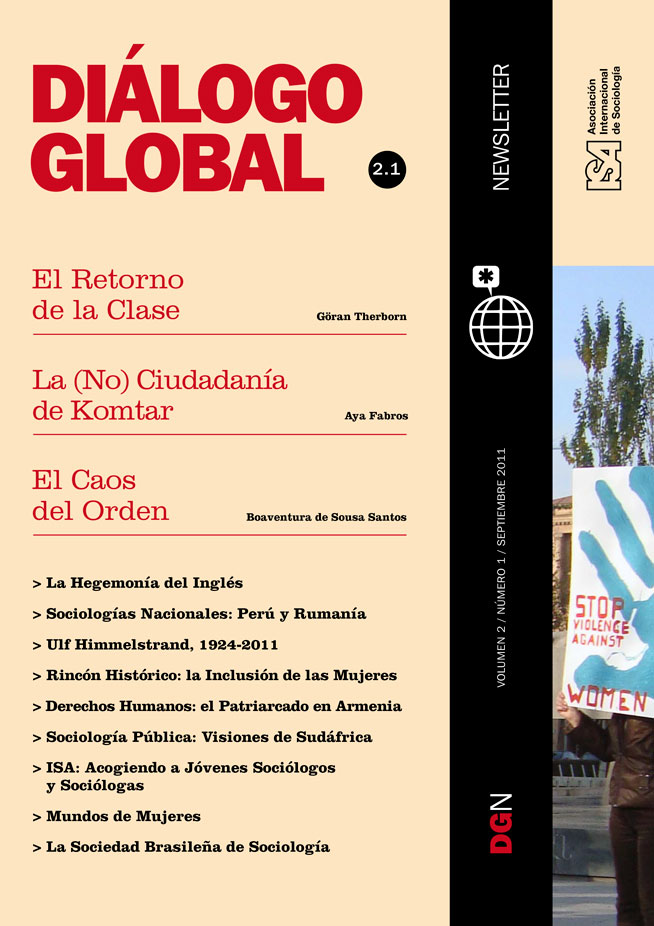The Hegemony of the English Language and the Social Sciences
September 30, 2011
English is the official language of globalization. I say ‘officially’ because the presence of other languages is constitutive of our contemporary condition, even though one language, above others, takes a privileged position. In the global market of linguistic goods English becomes the language of global modernity. What are the implications for the social sciences?
I would like to avoid two positions commonly encountered in intellectual debates. On the one hand, there is the view that the predominance of English is an artifact of imperialism. I do not believe that imperialism is a useful concept for the understanding of contemporary globalization. On the other hand, there is the view that national identity makes one’s own language authentic as against others that are fake. As Saussure teaches us, the arbitrariness of sign is tied to the context of territory and history – no language is superior to others, they only capture the real in distinct manners.
A banal statement in contemporary debates is that English is a ‘lingua franca’ in the scientific community. But what is a ‘lingua franca’? A language emptied of its multiple connotations with the intention of maximizing communication among scientists. This is partly possible in the natural sciences, but English cannot function as a ‘lingua franca’ in the social sciences. It is not as a question of national pride, but by virtue of the process of knowledge construction. The sociological object is constructed through language. Using this or that language is not accidental, but a decisive dimension of final result. Thus, there are differences in the practice of the natural and social sciences. Let me cite just a few examples. The natural science text, not only has a specific order of presentation, it uses a particular narrative form. It is written in the third person and generally the present tense. For example, biologists write: “the radiation doses delineate three strips…” or “the mutation distinctly presents itself centripetally…” The verb tense is the present and the utilization of the third person confers on the discourse an objectivity based on the absence of the scientist. Texts in the social sciences cannot remove the narrator, which is why C. Wright Mills described social science as an intellectual craft. The narrator could be an ‘I’ or a ‘we’, but certainly writing is not limited to the third person. Whether we use ‘I’ or ‘we’, in narrative discourse there is always a mediator. There is also the problem of translation, which is not limited to words, that is to the search for equivalent terms in two distinct languages. In the process of translation different intellectual traditions must be taken into consideration. The term ‘national question’ cannot be reduced to nationalism. The ‘national question’ implies a specific political context in which a specifically Latin American intellectual debate takes place – a context that involves the problematic of national identity, the construction of modernity, the critique of importing foreign ideas, the inferiority complex of colonized countries, and the dilemmas of peripheral modernity. It refers us to an entire bibliographic and artistic tradition – from Mexican muralists to Brazilian modernism. The ‘national question’ is a shorthand expression connected to the history of Latin American countries in search of their identities. This is not the same as nationalism.
However, despite these obstacles, the domination of English in the Social Sciences continues. There is a consolidation of certain scientific styles, global in scale, that favor the English language. This is the case, for example, in the use of databases whose production is conditioned by various factors, such as technical factors, costs, and market distribution. Organizing texts and citations requires a linguistic register which is minimized or hidden when one partakes in the pretention that such databases offer a reliable portrait of the scientific world. The Institute for Science Information (ISI) produces four different types of catalogues, each of which is marked by linguistic distortion. Between 1980 and 1996 in the Social Science Citation Index database, English language publications count for between 85% and 96% of all articles. If we accept the idea that a citation is a requirement for scientific authority, this signifies a clear hierarchy (grounded in nothing) based on linguistic exclusion. The choice of English in the production of databases, as in the publication of scientific reports and books, is a question of markets. The big corporations (Reed Elsevier, Wolters Kluwer) dominate the world market in English due to the ease of circulation of texts. In this way arbitrary linguistic criteria become the basis of the global legitimacy of ‘science making’ (or ‘doing science’). This arbitrariness has been reinforced by the advent of digital technology (texts in PDF, bibliographic indices) and an unequal distribution of translation on an international scale. In the U.S.A. and the U.K., translated foreign texts (including all genres) do not exceed 5% of the total published texts. While in countries such as Sweden and the Netherlands, this figure is approximately 25%, in Greece it is 40%. In other words, the more central a language the fewer are the texts translated into that language. After all, nothing of relevance could exist outside of it.
If, in the social sciences, English cannot function as a ‘lingua franca’, what is the meaning of its predominance? My impression is that English, by virtue of its ubiquity, acquires the capacity to ‘guide’ intellectual debate on a global scale. To ‘guide’ means to select those issues that will become relevant and visible from a much wider range of possible issues. Phrased another way, the English language has the power to shape the intellectual agenda. There are still other implications. Eugene Garfield, founder of ISI, said that in the 1970s the weakness of the French sciences was due to one fact: they were becoming provincial because they are written in French. This line of argument considers the universal to be an attribute of English, while provincialism defines all other languages. Global English becomes universal English. It is forgotten, however, that cosmopolitanism is not an attribute of the globalization process, and while particularism appears as dialect in the local it also appears as a defining feature of contemporary globalization. Under the condition of global modernity, then, it is perfectly plausible and commonplace, to be globally provincial.
Renato Ortiz, State University of Campinas, Brazil

